Skeleton Argument and Bundle of Authority: Contract Law Moot
VerifiedAdded on 2022/11/14
|16
|1484
|120
Project
AI Summary
This document presents a comprehensive contract law moot court project, meticulously outlining the arguments for both the appellant and the respondent. The appellant's argument focuses on the existence of a valid contract, emphasizing principles from cases like *Carlill v Carbolic Smoke Ball Company* and *Edwards v Skyways Ltd*, and addressing the application of the postal rule. The respondent's argument counters this, asserting that there was no intention to create a valid contract and that the postal rule was not applicable. The document includes a detailed skeleton argument for each side, supported by a bundle of authorities comprising primary legislation and key precedents such as *Smith v Hughes*, *Hyde v Wrench*, *Rose & Frank Co. v JR Crompton & Bros Ltd.*, and *Entores Ltd v Miles Far East Corporation*. The arguments are structured around specific grounds of appeal, with detailed submissions and case citations to support each point. This project offers a thorough exploration of contract law principles, providing a valuable resource for legal students and professionals seeking to understand the nuances of contract formation, offer and acceptance, and the application of legal precedents.
1 out of 16
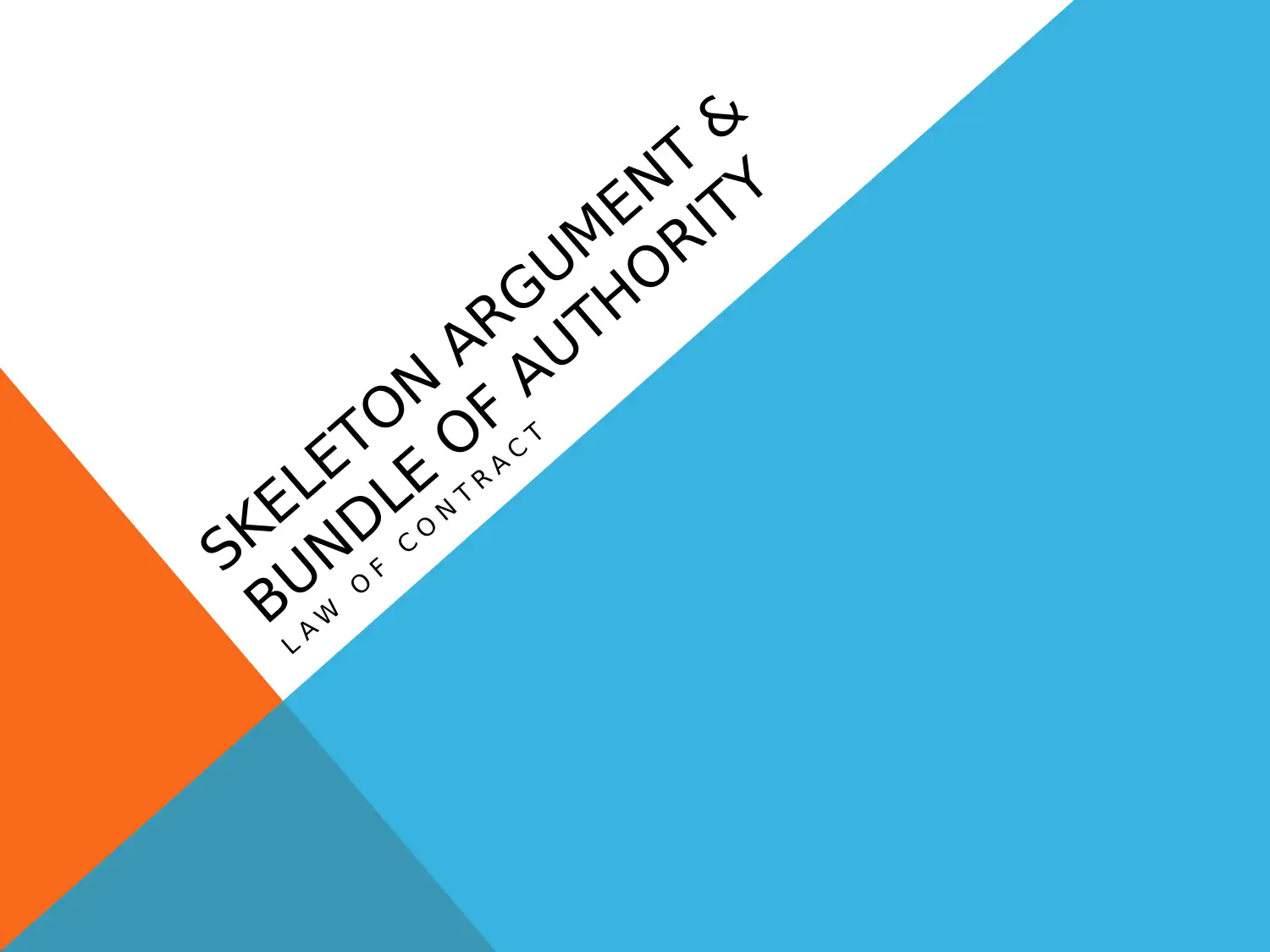
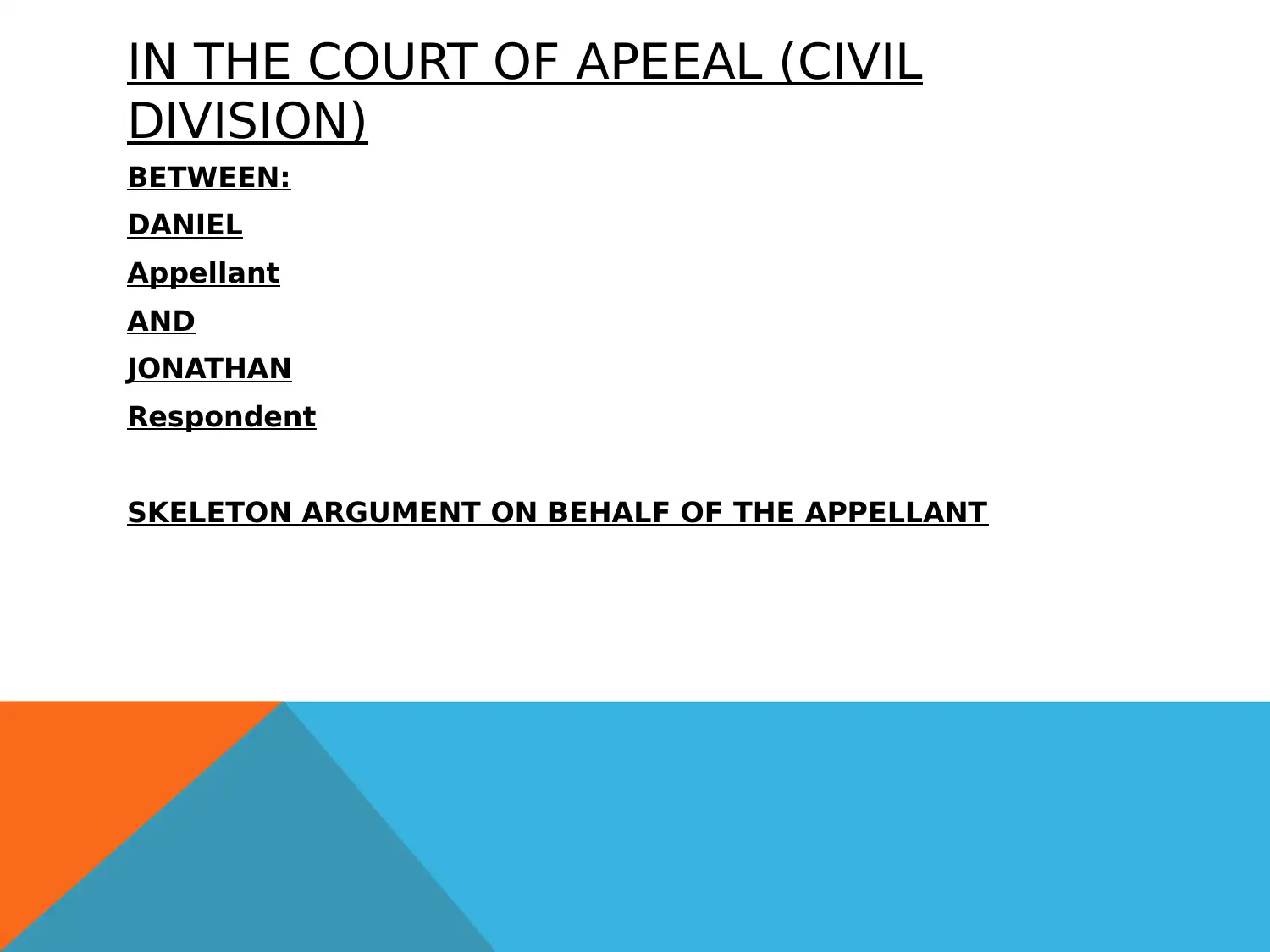
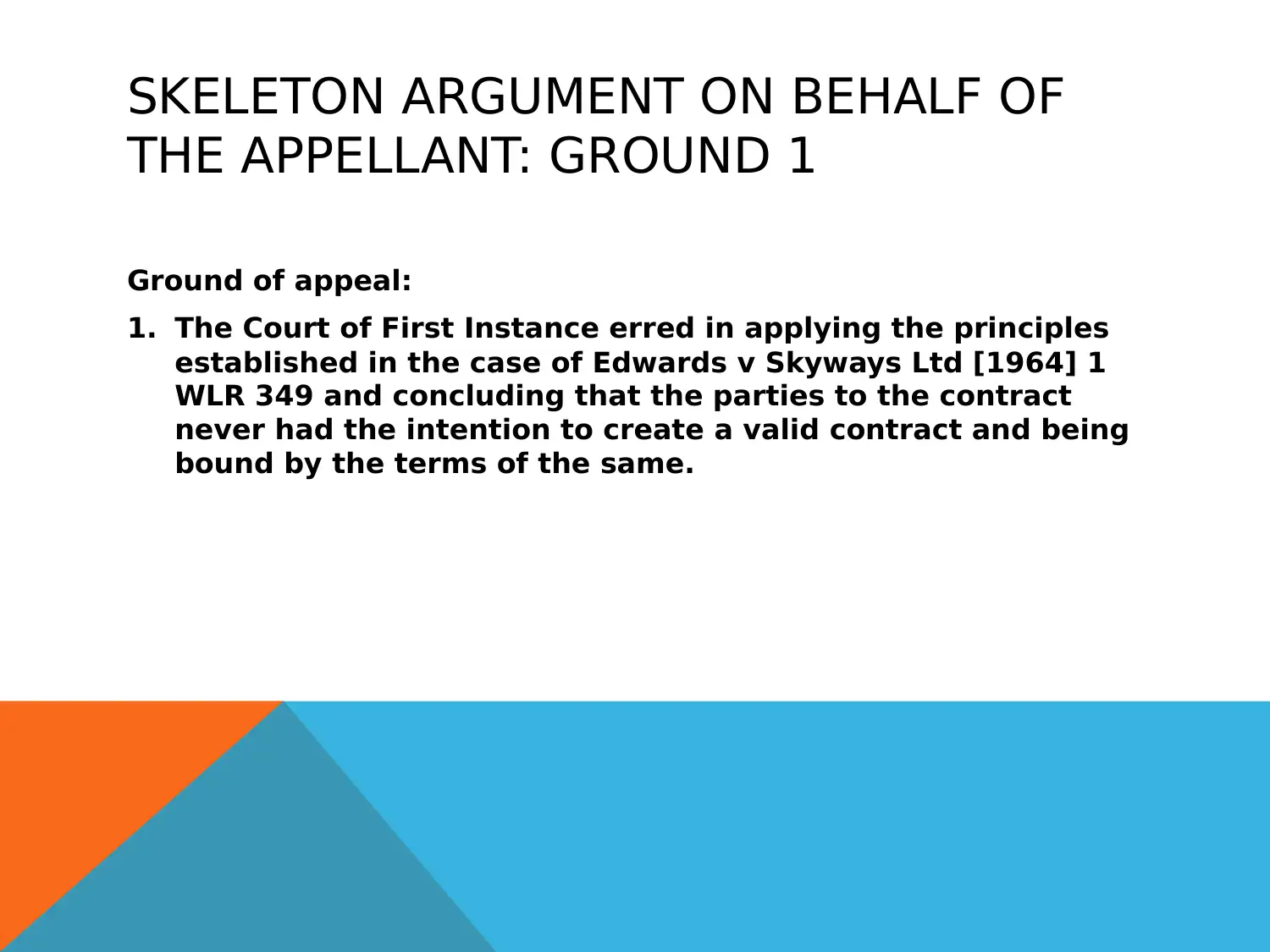

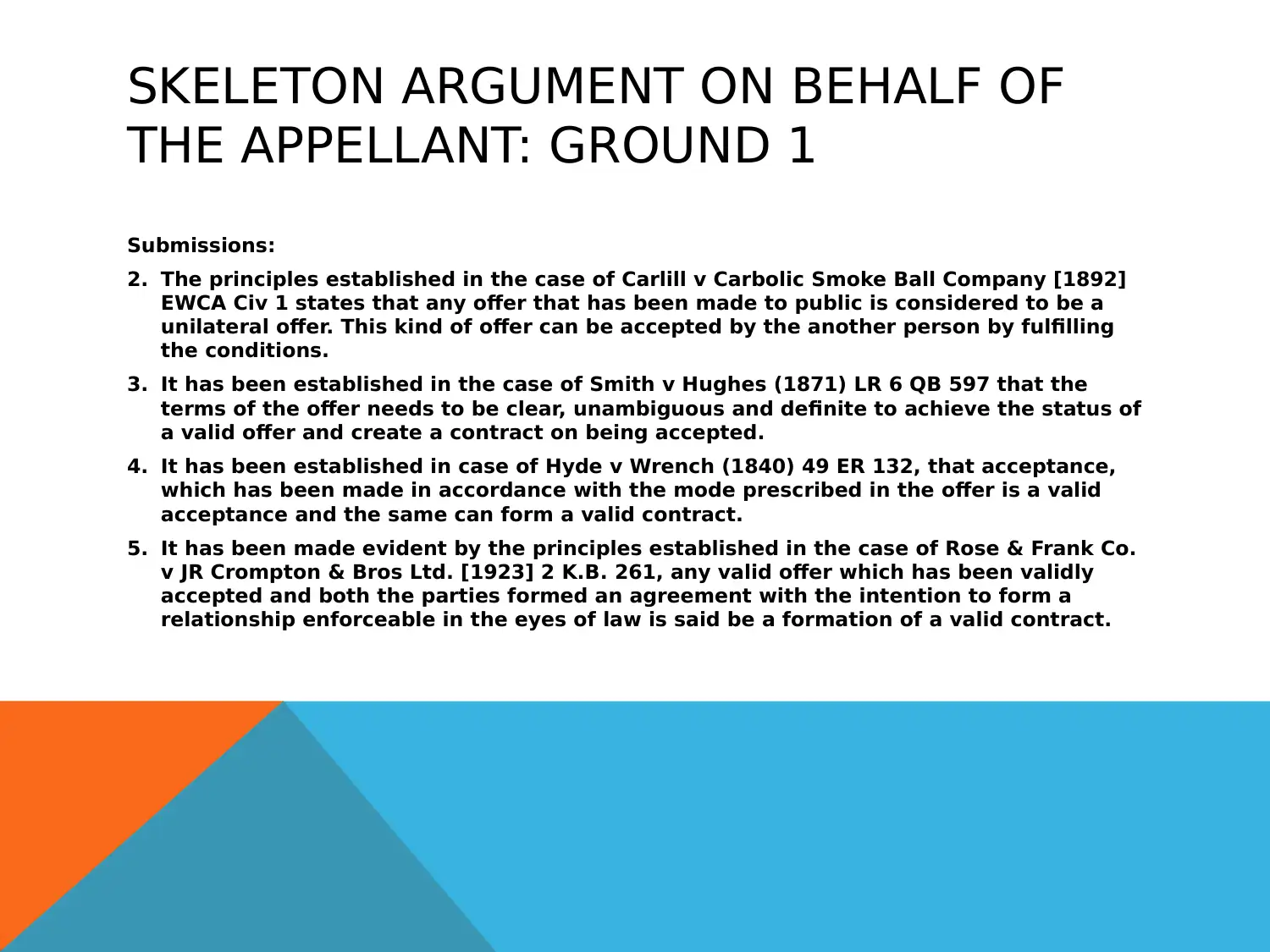
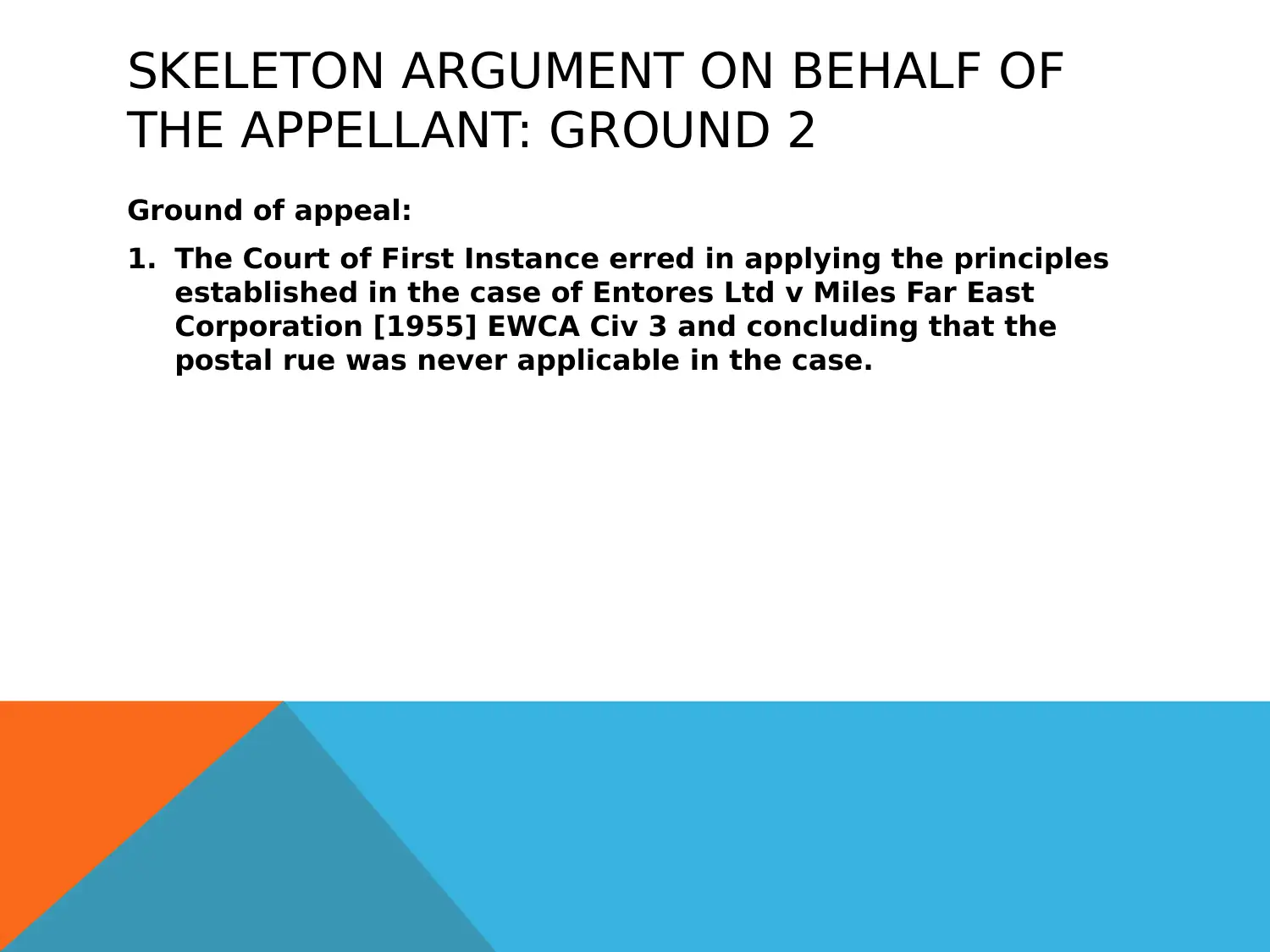
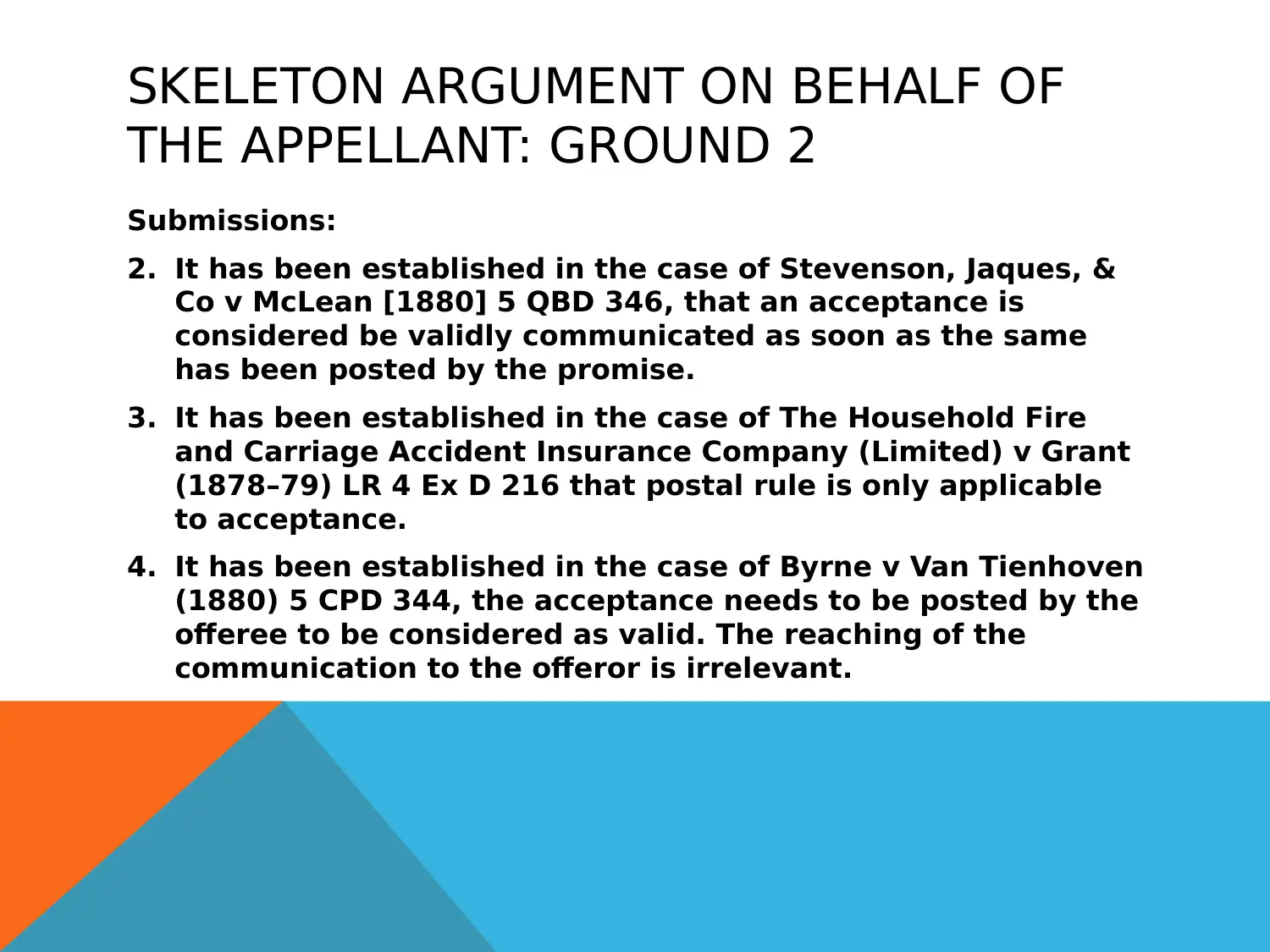
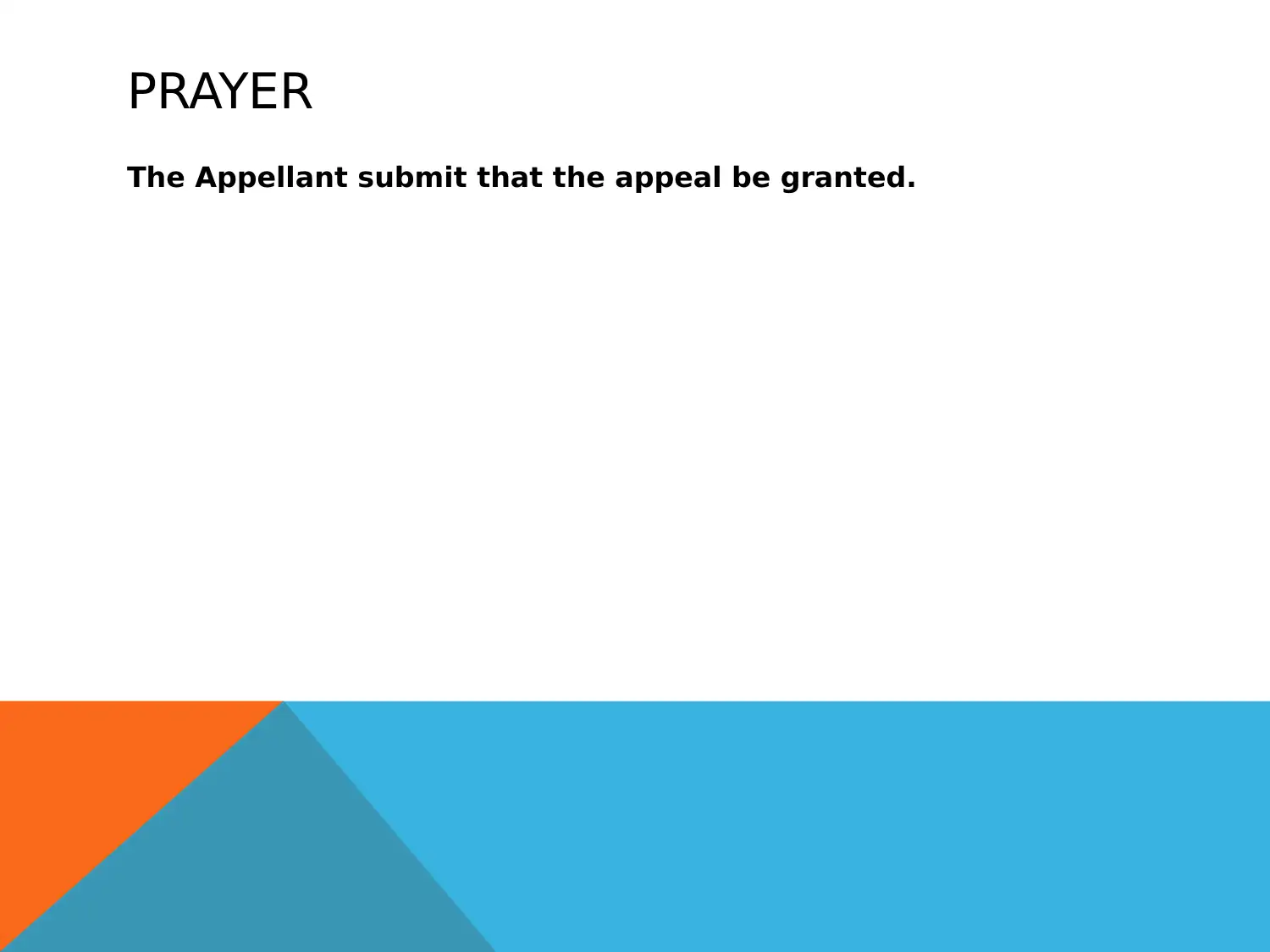
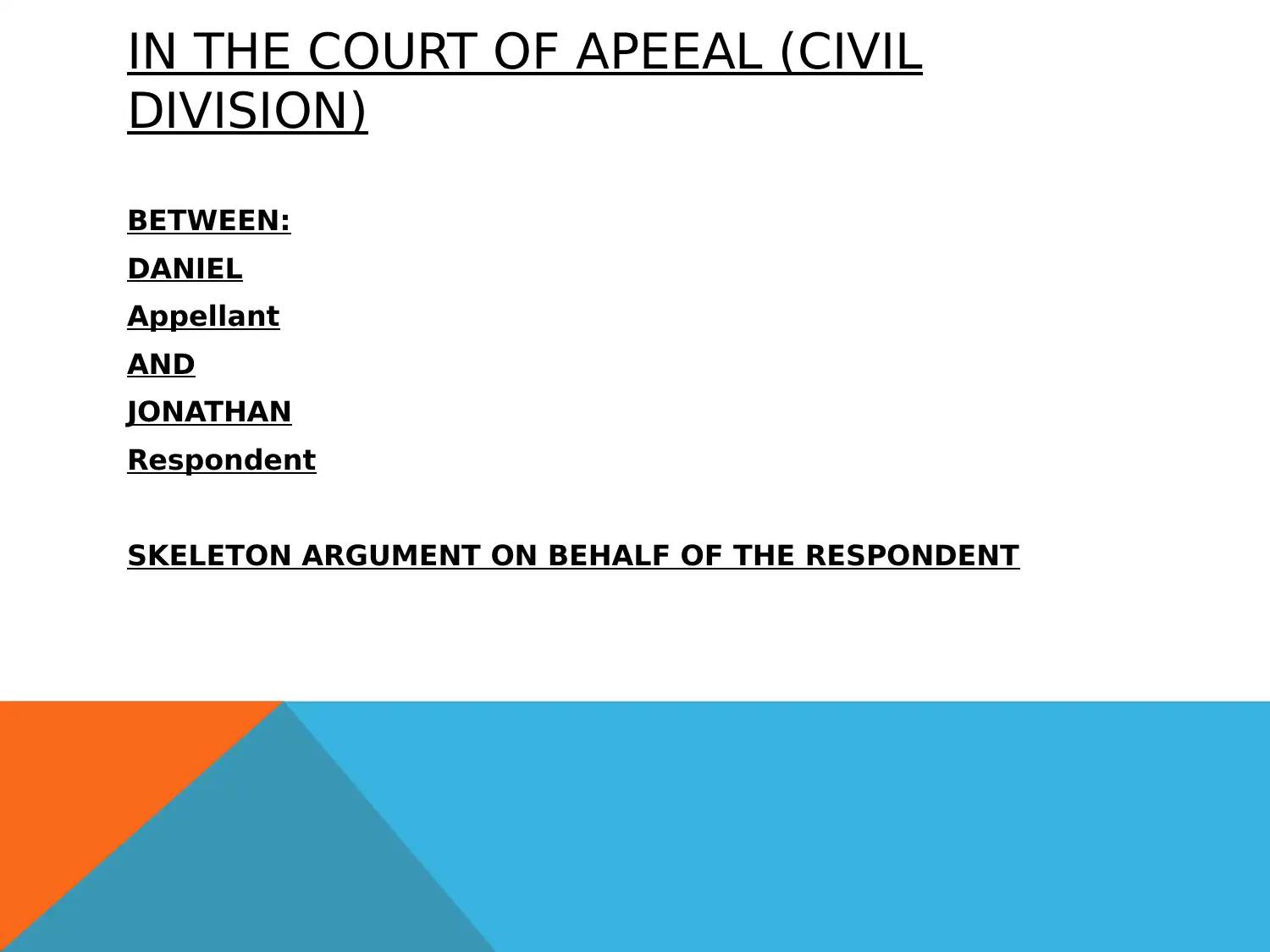
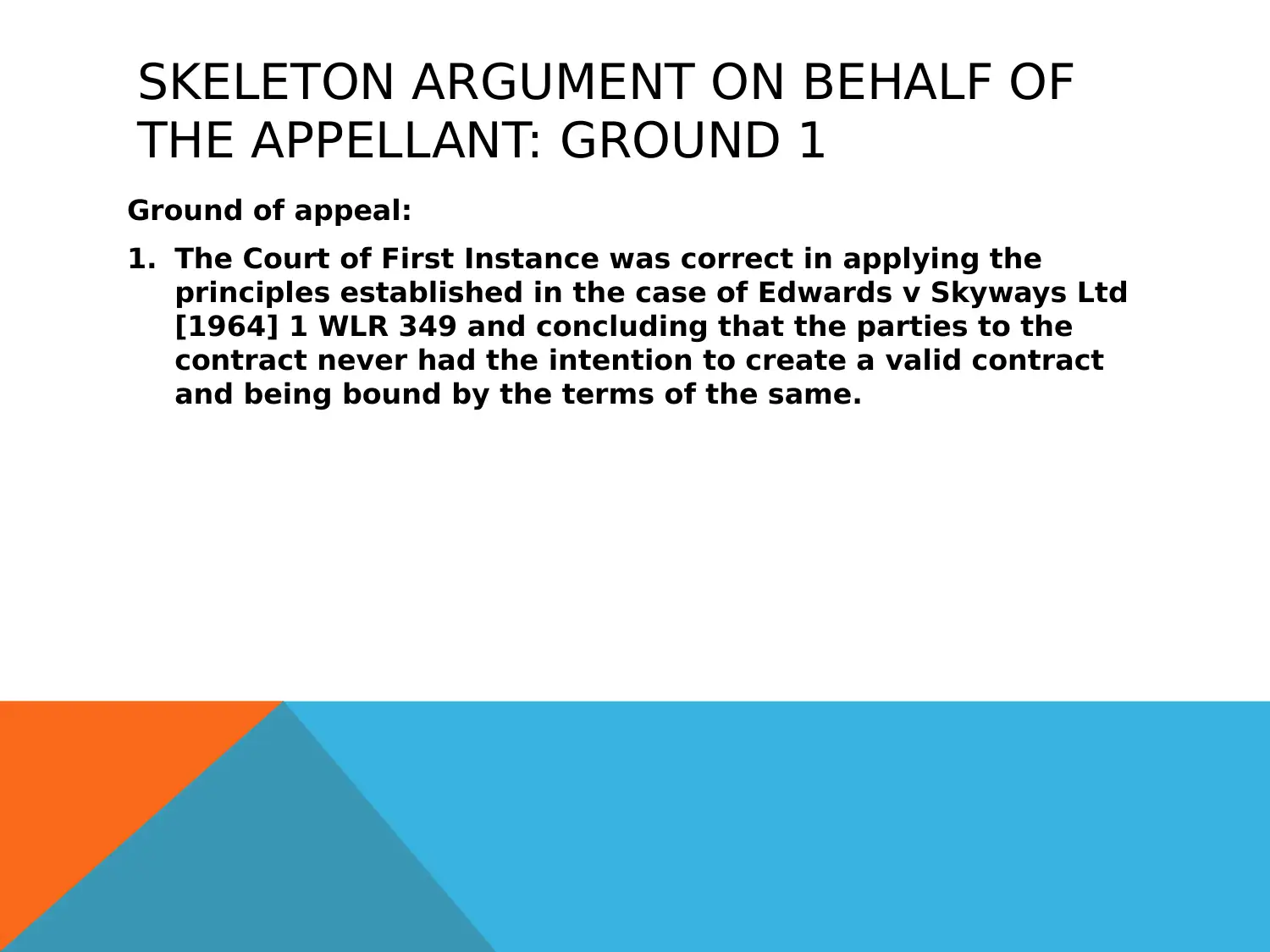
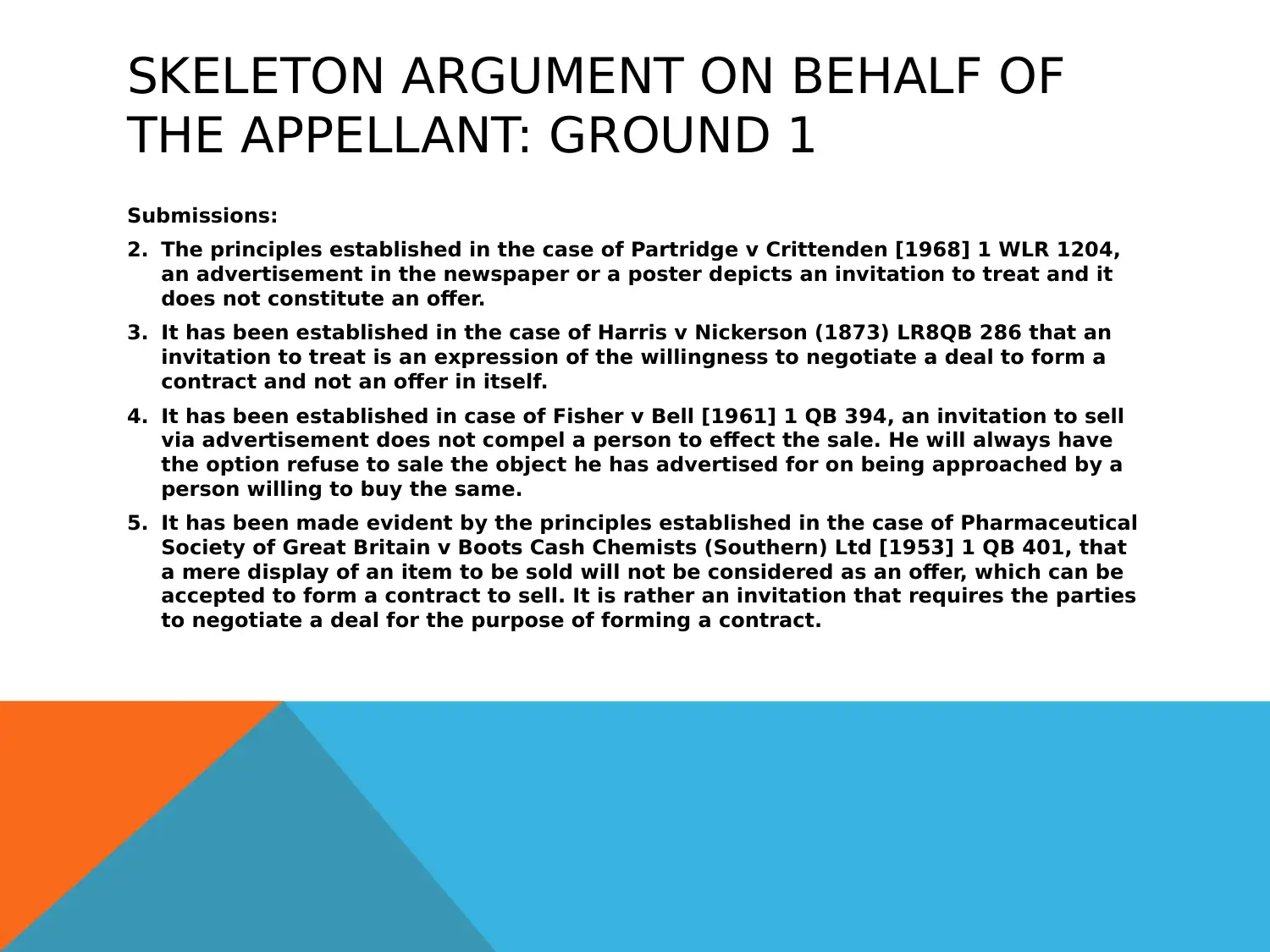
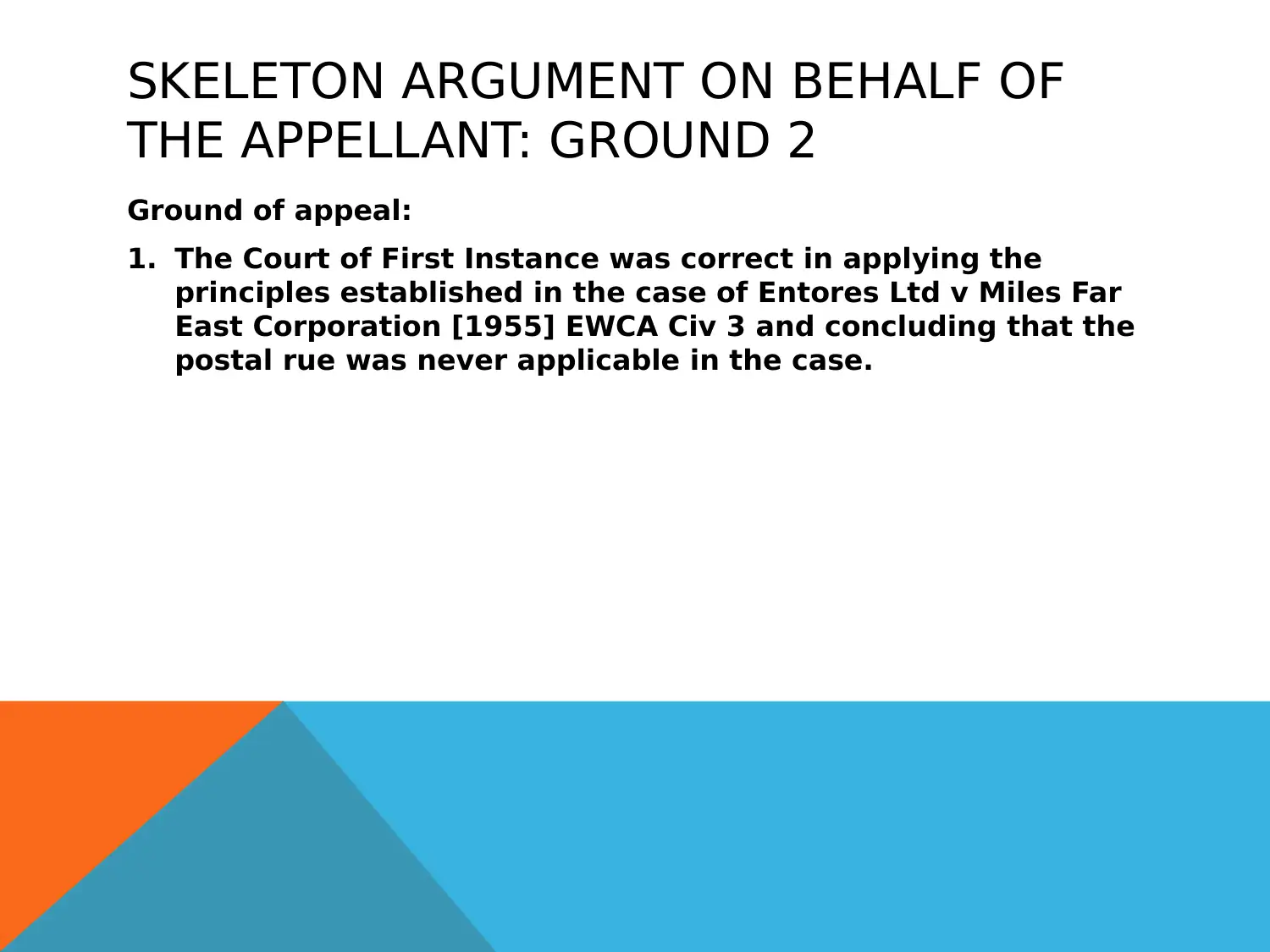
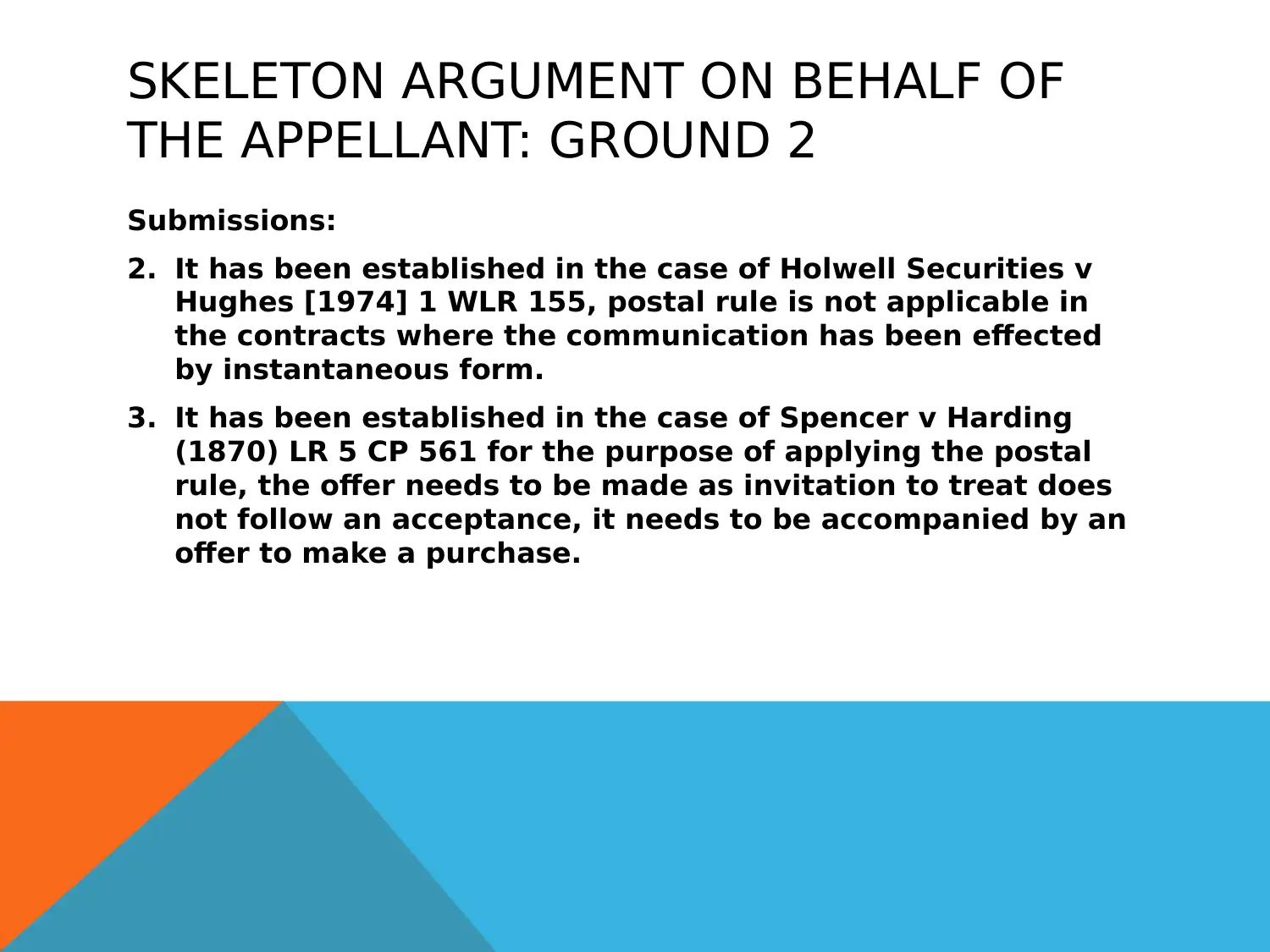





![[object Object]](/_next/static/media/star-bottom.7253800d.svg)